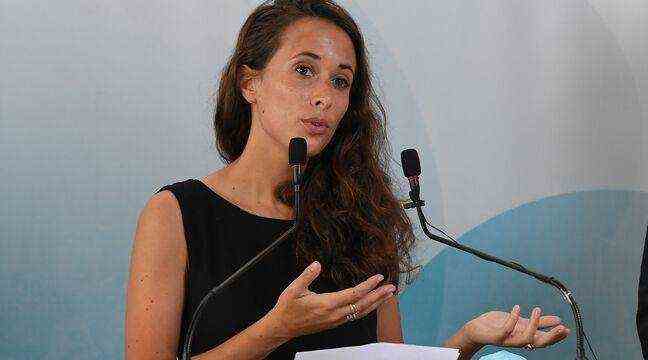Clémence Guetté is the LFI and NPA candidate for the regional in New Aquitaine. – CHRISTOPHE SAIDI / SIPA
- Clémence Guetté (LFI-NPA) is a candidate in the regional elections in New Aquitaine, which are held on June 20 and 27.
- She specifies for 20 minutes three of the measures of the ecological component of the program.
- Free public transport and the development of renewable energies are at the heart of the proposals.
At 29, Clémence Guetté is at the head of the list ” We are here “, formed by La France insoumise (LFI) and the New Anti-Capitalist Party (NPA). Originally from Deux-Sèvres, she explains to 20 minutes three strong proposals of the program to initiate an “ecological bifurcation” at the scale of the region.
Do you have the idea of gradually making public transport free?
Yes, one of our flagship measures is free public and local transport by the end of the mandate, starting with priority audiences and then generalizing because transport represents 39% of greenhouse gas emissions. greenhouse in the area. We have seen since the mobilization of the “yellow vests”, which we feel politically close, that it is the lever that [au niveau individuel et collectif] impacts people the most financially and then creates access to essential public services.
How to finance this measure?
For example, there is public money that is used to finance highways that in fine will be privatized and will put money in Vinci’s pockets. We can recover financial leeway on transport by making other choices. And besides, we are not the only ones in France to offer this free transport. Audrey Pulvar also offers it in Ile-de-France for example. It is not necessarily politically marked free, I just believe that it is a necessary choice for tomorrow.
In your program, you explain that hydropower is the first renewable energy in the region and that it must be developed. By what means ?
There is a real subject in our region on hydraulic potential. There are proposals for pumped energy transfer stations (WWTPs) which would allow instead of just operating with the flow of a river subjected to melting, etc., which necessarily implies irregularities, to create a circuit closed and therefore supplied continuously. There are technologies in which we should invest more. We have, including all the small dams, 500 to 600 dams, which is massive.
Their potential is not fully exploited and there is even utter nonsense, because they are sometimes privatized and put into the energy market at large. For example, employees told me that during the health crisis (which led to changes in energy consumption), they found themselves producing more energy than it was profitable to sell. They have come to close the dams, so that the river flows over them, so as not to lose money in the power plants. So how do we optimize it to serve the general interest and keep it in the public fold? This goes a little beyond regional competences but we can also influence decisions vis-à-vis the State, when we are a region which represents 1 / 8th of the metropolitan territory.
You want to put in place a regional plan to have 100% of the roofs of usable housing equipped with solar panels by 2027. What levers do you plan to activate?
It is necessary to use the wastelands, polluted or already artificialized lands to install solar. This is part of the misguided financial incentives including the common agricultural policy (CAP) since farmers, if ever they install solar panels on useful agricultural land, get a better return than if they do agriculture. Necessarily, when you are trying to survive and the financial question arises, you make a choice. It will be very easy on the roofs of public buildings and we will develop a system of financial incentives for individuals, this is how we will be able to succeed.
All this will require clarification, citizen assemblies because we will not do without the population. Ecology is no longer an environmentalist subject but of general interest and public utility, which everyone must understand.

